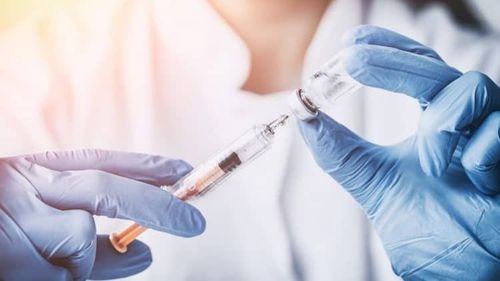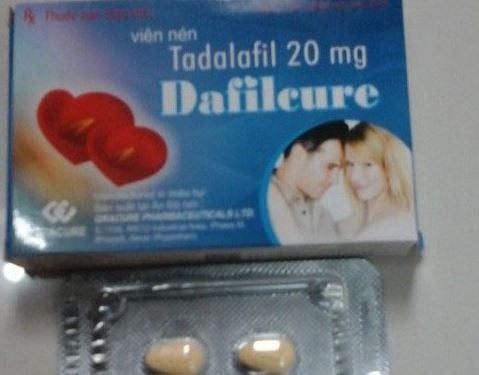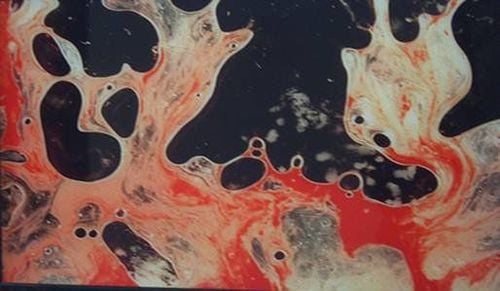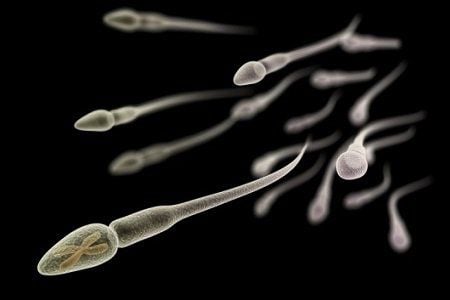This is an automatically translated article.
The article is professionally consulted by Master, Doctor Vo Thien Ngon - Department of General Surgery - Vinmec Da Nang International General Hospital
The seminal vesicles are a pair of pouch-like glands located in the pelvic region in men. They are responsible for the production of most of the components of semen.
1. Brief anatomy and operation of seminal vesicles
The two seminal vesicles are located below the bladder and above the prostate gland. The seminal vesicle is the lateral bulge of the vas deferens, about 3 - 4 ml in volume, normal size without obstruction is 2 - 4 cm in length and 1-2 cm in width. The seminal vesicle shape is a single highly coiled, bulging, straight tube approximately 15 cm in length. The seminal vesicles and vas deferens merge to form the ejaculatory duct. The smooth muscle coat from the seminal vesicles and vas deferens merges with the cortex of the prostate gland at the base of the prostate. The excretory duct of the seminal vesicle joins the vas deferens as it enters the prostate gland.Microstructure of seminal vesicles with columnar epithelium with goblet cells. The seminal vesicles are surrounded by a thin layer of smooth muscle cells, surrounded by a loose vascular mantle. The three-layer tubules of the seminal vesicles consist of an inner mucous membrane, a collagen middle layer, and an outer layer of circular and longitudinal muscles. The muscular layer accounts for 80% of the thickness of the seminal vesicle wall. The thin, folded mucosa of the seminal vesicles is composed of noncapillary, simple square pseudostratified cells, or columnar cells.
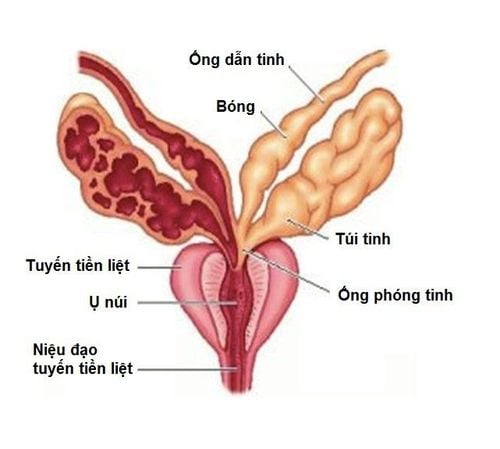
The fluid produced by the seminal vesicles is an important environment for sperm to survive and develop. The main components of this fluid include:
Fructose, which provides energy for sperm Alkaline fluid, which helps to neutralize the naturally acidic environment in the male urethra and female vagina Proteins such as semenogelin, which form the layer protective gel around the sperm. Phosphorus and potassium, help sperm motility. The hormone prostaglandin, plays a role in reducing the immune response of women to male semen.
2. Signs that the seminal vesicles are experiencing an abnormal condition
Like other organs, although rare, the seminal vesicles can also experience abnormalities. Common symptoms of seminal cystitis are:Pain in the abdomen, pelvis or penis Discomfort or pain during ejaculation Blood in ejaculation Low sperm count Pain when urinating Bloody urine Remember these symptoms The above may also indicate pathology of other organs, not necessarily of the seminal vesicles. If you experience any of these symptoms, see a specialist as soon as possible.
3. How to keep the seminal vesicles healthy?
The seminal vesicles play a role in the production of the fluid that makes up the majority of semen, so keeping the seminal vesicles healthy is important. The following can help:Practice safe sex : always remember to practice safe sex, especially when having sex with a new partner. Condoms are the simplest, cheapest and most effective way to not only prevent unwanted pregnancy, but also help prevent sexually transmitted diseases.

Andrology specialty has the function and task of specializing in examination, treatment as well as early detection of health problems related to male genital organs, physiological diseases, reproductive functions and diseases. sexually transmitted.
Common diseases of the department such as: seminal cystitis, orchitis, balanitis, cystitis, urethritis, foreskin length, foreskin stenosis,...
Doctor Vo Thien Ngon has over 7 years of experience as a urologist and surgical doctor at Hospitals: Hue Central Hospital, Hue University of Medicine and Pharmacy Hospital, Tam Tri Da Nang General Hospital.
Doctor Ngon with the ability to specialize in the field of examination and treatment of diseases of the Urology and Andrology system, Urology surgery, endoscopic urological surgery, Laparo urinary tract surgery, endoscopy Urinary. Currently, Dr. Vo Thien Ngon is a Urology - Orthopedic Surgery Doctor, Department of General Surgery, Vinmec Da Nang International Hospital
Please dial HOTLINE for more information or register for an appointment HERE. Download MyVinmec app to make appointments faster and to manage your bookings easily.
Articles refer to sources: Healthline.com and Sciencedirect.com





